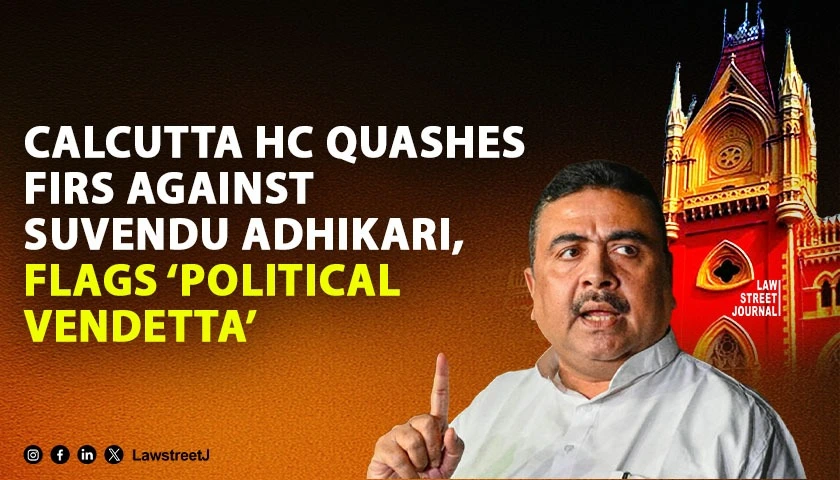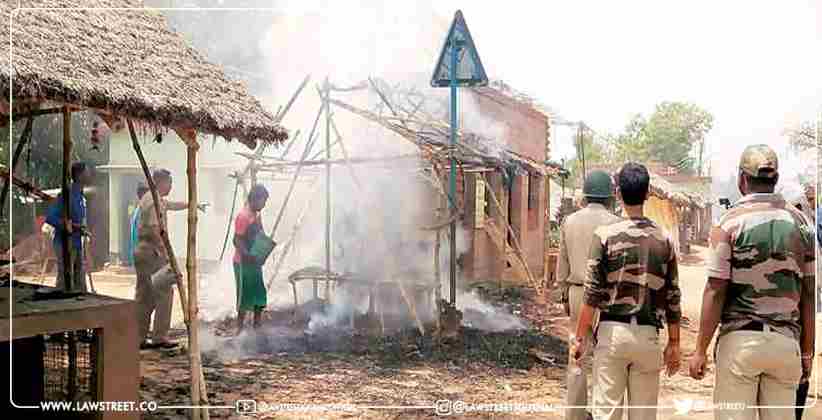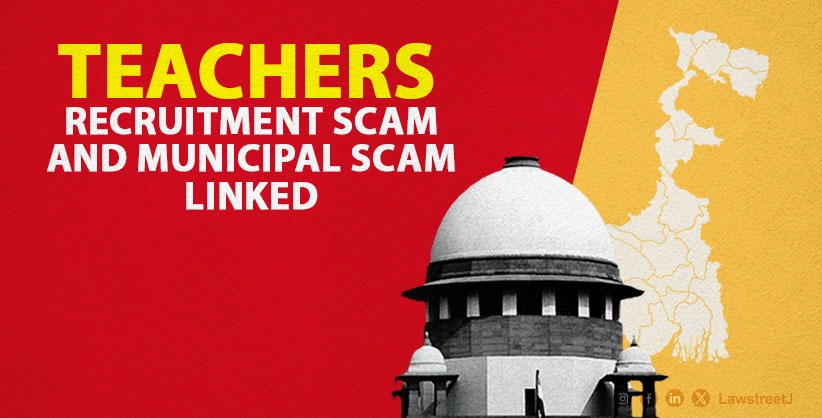Kolkata: The Calcutta High Court has quashed multiple criminal proceedings against Suvendu Adhikari, Leader of Opposition in the West Bengal Legislative Assembly, terming the pattern of cases filed after his political defection “disturbing,” and emphasizing that malicious prosecution is a valid ground for quashing proceedings.
A bench of Justice Jay Sengupta collectively addressed sixteen distinct criminal proceedings initiated against Adhikari between February 2021 and November 2022.
The crux of the petitioner’s case was that Adhikari, who joined the BJP on December 19, 2020 after leaving the TMC, subsequently defeated the incumbent Chief Minister in the Nandigram Assembly constituency on May 2, 2021. The Court noted that no criminal cases were filed against him by the State during the entire period from 2011 (when the present ruling dispensation came to power) until his political defection.
While noting the arguments presented on behalf of the petitioners, the Court expressed serious concerns about this pattern, observing:
“If so many cases, as are the subject matters of these petitions, could be started against the present petitioner after shifting of political allegiance during such a short span of time and so many more cases could be started against him till interim restrictive order/s could be passed by this Court, then one would be at a loss to ponder about whether the petitioner is a habitual offender and quite an incorrigible one.”
The Court reiterated the principle regarding malicious prosecution, stating:
“Mala fide is indeed a ground for quashing of criminal proceedings.” It further noted that establishing malice requires examining the surrounding circumstances, as conspiracies to falsely implicate someone are often executed “in secrecy or inside closed doors.”
Relying heavily on the Supreme Court’s decision in Haji Iqbal @ Bala through SPOA v. State of Uttar Pradesh, the Court emphasized its duty to “carefully look into the FIR and the attending circumstances emerging from the records over and above the averments and try to read in between the lines.”
In a sharp criticism of the State’s conduct, the Court stated:
“It is very strange indeed that the State, which is the ultimate protector of rights of its citizens, could take such a cavalier stand in deciding not to press or seriously oppose the prayer for quashing in as many as eight criminal proceedings, that too during the hearing of the applications.”
The Court also found serious irregularities in the registration of several FIRs. In three cases filed at Contai Police Station (Case Nos. 73/2022, 74/2022, and 75/2022), the Court noted that they were “registered on the same date about an incident that happened on 15.02.2022 with an interval of about ten minutes from each other,” adding that the complaints were “exact replicas of each other.” It held that the allegation of malice “seems to get substantial vindication.”
Justice Sengupta further criticized the violation of mandatory preliminary-enquiry requirements. In several delayed-complaint cases, FIRs were registered immediately without following the procedure mandated in Lalita Kumari v. Government of Uttar Pradesh.
In Contai PS Case No. 248/2021, involving the death of a security personnel, the Court observed that the FIR was lodged after more than two and a half years. It remarked:
“At best, the allegation is primarily about a suspicion regarding purported delay caused in arranging an ambulance,” adding that “no roving or fishing enquiry ought to be permitted in criminal law solely on someone casting mere suspicion.”
Regarding alleged hate-speech cases at political rallies, the Court made observations on permissible political expression. In Tamluk PS Case No. 595/2021, it held that “urging to protect one’s own belief or caste or clan has not been made illegal in our laws.” Likewise, in Nandigram PS Case No. 705/2021, it observed that merely calling for the consolidation of one’s own group or protesting perceived discrimination “does not necessarily attract the mischief of inciting hatred against other groups.”
Significantly, the Court also directed the constitution of a Special Investigation Team (SIT) for certain cases where investigation was allowed to continue, stating:
“Let the investigation of the case be carried out by an independent Special Investigation Team, to be headed by two Officers of the rank of Superintendent of Police, one belonging to the CBI and the other belonging to the State of West Bengal.”
The Court quashed nine proceedings entirely and partially quashed three others, while directing SIT-monitored investigation for the remaining cases, instructing that such investigations be monitored by the jurisdictional court.
Case Title: Suvendu Adhikari v. State of West Bengal & Ors.





![Calcutta High Court conducts late-evening hearing, orders release of lawyer arrested inside court [Read Order]](/secure/uploads/2023/12/lj_4146_Court_lawyers_arrest.jpg)
![Indian Courts this Week: Law Street Journal's Weekly Round-Up of SC & HCs [Jan 1 - Jan 6]](/secure/uploads/2024/01/lj_9050_WhatsApp_Image_2024-01-06_at_12.07.10_PM.jpeg)




